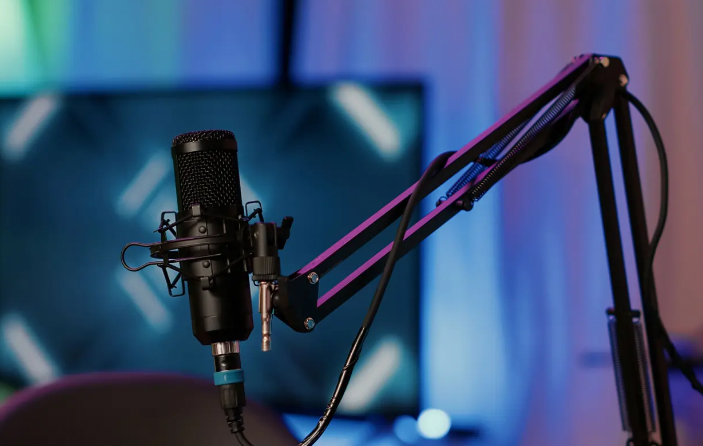|
In recent years, podcasting has emerged as a disruptive force in the media industry, challenging traditional television and radio with its personalized, on-demand content. As the medium continues to evolve, aspiring podcasters and established creators alike must navigate the economics of production while keeping an eye on future trends. This article explores the costs associated with podcasting and delves into the exciting possibilities that artificial intelligence (AI) brings to the future of this dynamic medium.
The Cost of Podcasting: Breaking Down the Numbers
Starting a podcast can be relatively affordable compared to traditional media, but costs can scale up quickly depending on the quality and scope of your production. Let's break down the essential elements and their associated costs:
1. Equipment
The heart of any podcast setup is the equipment. A good quality microphone is essential, with prices ranging from around $100 for entry-level models to over $1,000 for professional-grade options. To connect your microphone to your computer, you'll need an audio interface, which can cost anywhere from $100 to $1,000. Don't forget about headphones for monitoring your audio; a decent pair can be found for $50 to $300. Lastly, you'll need a reliable computer or laptop for recording and editing, which could set you back $500 to $2,000 or more if you need to purchase a new one.
2. Software
When it comes to software, you have options ranging from free to premium. Recording and editing software like Audacity and GarageBand are available at no cost, while professional-grade options like Adobe Audition or Logic Pro can cost $300 or more. You'll also need a hosting platform to distribute your podcast, with monthly fees typically ranging from $5 to $100+, depending on the features and storage capacity you require.
3. Marketing and Promotion
To grow your audience, you'll need to invest in marketing and promotion. Creating a website for your podcast can cost anywhere from $100 to $1,000 or more, depending on its complexity. Social media advertising costs vary based on your budget and strategy. Don't forget about podcast artwork – hiring a designer for a professional look can cost between $100 and $500+.
4. Additional Costs
Other expenses to consider include transcription services, which vary based on episode length, and potentially fees for guest appearances if you're booking high-profile guests.
Overall Cost Ranges
Taking all these factors into account, a minimal setup could cost between $500 and $1,000. A mid-range professional setup might run from $2,000 to $5,000, while a high-end production could easily exceed $10,000. It's important to note that many podcasters start with basic setups and upgrade over time as their audience and revenue grow.
Monetization: Recouping Your Investment
As your podcast gains traction, several monetization strategies can help offset costs and potentially turn a profit. Advertising is a common approach, with rates varying based on audience size and engagement. Sponsorships can range from simple product mentions to fully sponsored episodes. Subscription models, such as those offered through platforms like Patreon, allow for premium content offerings. Some podcasters also sell branded merchandise to their most devoted listeners.

The Future of Podcasting: AI-Powered Innovation
As we look to the future, artificial intelligence is poised to revolutionize the podcasting landscape. AI-driven personalization is one exciting development on the horizon. This could include tailored content recommendations based on listener preferences, dynamic content adaptation in real-time, and personalized audio settings for optimal listening experiences.
Interactive podcasts are another area of innovation. Imagine voice-commanded playback and engagement, gamified elements like quizzes and challenges integrated into episodes, and real-time interactions between listeners and hosts.
AI-generated content is set to streamline production processes. This includes automated transcription for improved accessibility, AI assistance in content creation and script writing, and even voice synthesis for multi-language production.
Enhanced audience engagement through AI is also on the horizon. This could involve sentiment analysis of listener feedback, AI-facilitated community building features, and hyper-targeted advertising for increased revenue.
These AI-powered advancements promise to create more engaging, personalized, and interactive podcast experiences. For creators, this means new opportunities to connect with audiences and potentially reduce production costs through automation.
Conclusion
The world of podcasting continues to evolve, offering both challenges and opportunities for content creators. While the costs of entry can vary widely, the potential for building a loyal audience and generating revenue remains strong. As AI technologies continue to advance, we can expect podcasting to become an even more dynamic and personalized medium, opening up new avenues for creativity, engagement, and monetization.
For those considering entering the podcasting space or looking to upgrade their current setup, careful consideration of costs and future trends will be crucial for success in this ever-changing landscape.
Posted on: Sep 11 2024
|